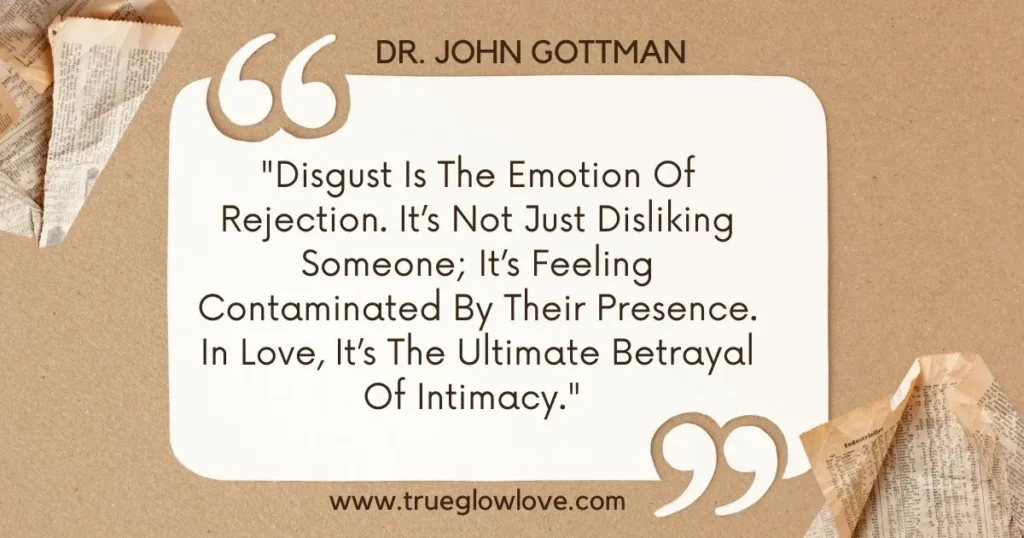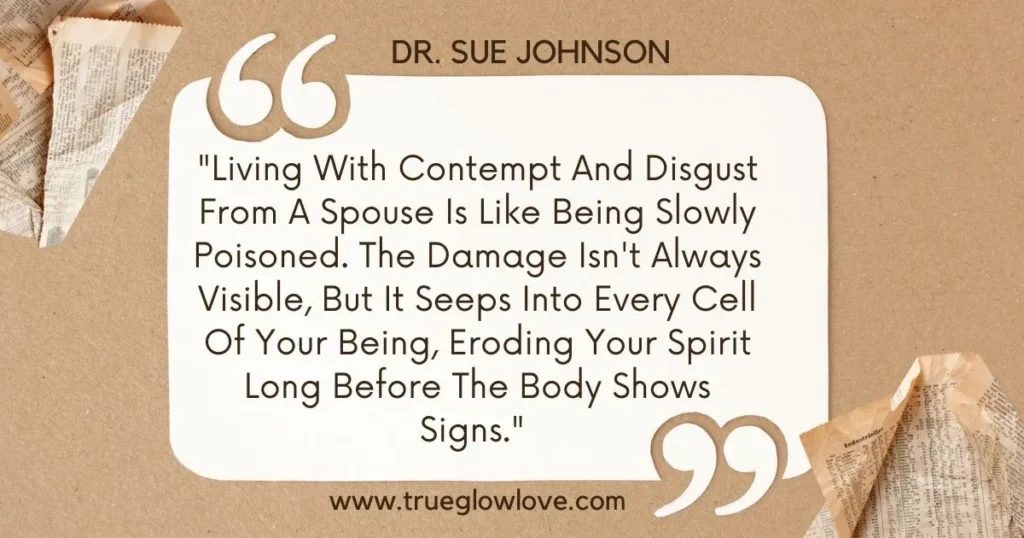When Your Husband Is Disgusted by You, Is Love Lost?
The coffee cup sits untouched on the counter. You placed it there just minutes ago, a small peace offering after a tense morning. But the look he gave you—the flicker of something sharp, almost physical, in his eyes before he turned away—it wasn’t anger. Anger, you could fight. Anger, you could understand. This was different. It was a recoil, a subtle tightening around his mouth, a turning of his body away from you as if your very presence was… unpleasant. A cold dread settles in your stomach. My husband is very cruel to me, the thought whispers, sharp and terrifying. He looks at me like I’m something dirty. You feel your cheeks burn, not with anger, but with a profound, humiliating shame. You retreat to the bathroom, lock the door, and stare at your reflection, searching for the flaw he seems to see so clearly. This isn’t just a fight. This is a silent, devastating erosion of the foundation you built together. If you’re sitting there right now, heart pounding, wondering why he looks at me like that, know this: your pain is valid, your confusion is understandable, and you are not alone in this isolating storm. Disgust within a marriage is one of the most corrosive and bewildering emotions to face. It cuts deeper than anger because it carries an implicit judgment: You are inherently repulsive to me. It shatters the basic sense of safety and acceptance that should exist between partners. This article isn’t about assigning blame or offering simplistic fixes. It’s about cutting through the fog of shame and fear to understand what disgust means in your relationship, recognizing its signs without spiraling into self-blame, and most importantly, finding a path toward clarity, healing, and reclaiming your sense of self-worth—whether that path leads to reconciliation or a necessary, empowered separation. You deserve to be met with respect, not revulsion, and understanding the landscape is the first step toward finding solid ground again.
What Does It Mean When Your Husband Is Disgusted by You?
Let’s get precise. Disgust in a marital context isn’t simply annoyance or frustration. It’s a primal, visceral emotion rooted in our evolutionary need to avoid contamination (physical or moral). Psychologically, it signals a profound sense of moral or physical contamination emanating from the other person. In relationships, it often manifests as:
- Moral Disgust: Perceiving your partner as violating core values (e.g., dishonesty, perceived laziness, lack of ambition, parenting choices he deems unacceptable).
- Physical Disgust: Reacting negatively to aspects of your appearance, hygiene, habits, or sexuality in a way that feels deeply offensive to him.
- Psychological Disgust: Feeling repulsed by your emotional state, perceived neediness, communication style, or mental health struggles.

Crucially, disgust is distinct from other negative emotions:
- vs. Anger: Anger seeks change or retribution within the connection (“I’m mad at you, fix this!”). Disgust seeks distance and separation (“I need to get away from you”).
- vs. Indifference: Indifference is emotional absence (“I don’t care”). Disgust is an active, negative emotional presence (“You actively disturb me”).
- vs. Contempt: Contempt involves feeling superior (“I’m better than you”). Disgust involves feeling contaminated (“You make me feel dirty/worse”).
As Dr. Martha Stout, clinical psychologist and author of The Myth of Sanity, explains: “Disgust is the emotional signal that something is fundamentally wrong with the object of that disgust, from the perceiver’s perspective. In a marriage, it shatters the illusion of ‘us’ and replaces it with ‘me vs. something toxic.'” This perception, whether based in reality or distorted by his issues, creates a chasm that feels impossible to bridge. It’s vital to understand that his feeling disgust does not automatically mean you are disgusting. It reflects his internal state, perception, and potentially unresolved trauma or pathology, interacting with the current dynamics of your relationship.
Signs Your Husband Is Disgusted: Key Behavioral and Emotional Indicators
Recognizing disgust requires looking past surface-level arguments. It’s often communicated through subtle, consistent patterns rather than explosive declarations. Here are key behavioral and emotional indicators:
- The Physical Recoil: Noticeable shrinking back when you move close, turning his head away during conversations (especially intimate ones), avoiding physical touch beyond typical distance (e.g., flinching if you accidentally brush him), sitting as far away as possible.
- The Tone That Cuts: A vocal quality that isn’t loud anger, but a cold, flat, or sneering tone that conveys profound distaste. Phrases like “Ugh,” heavy sighs when you speak, or speaking over you as if your words are an irritant.
- The Avoidance Pattern: Consistently finding reasons not to be in the same room, taking excessive time alone (in another room, garage, long commutes), avoiding shared activities you once enjoyed, delegating household tasks involving you to others.
- Non-Verbal Cues of Contamination: Visible grimacing, nose-wrinkling (a universal disgust signal), excessive hand-washing after contact with you, meticulously cleaning surfaces you’ve touched.
- Dehumanizing Language: Referring to you in derogatory terms (“you’re gross,” “you’re disgusting,” “you’re pathetic”), making comparisons to things he finds repulsive, speaking about you to others (or within earshot) with contempt.
- Withdrawal of Care & Intimacy: A complete shutdown of emotional and physical intimacy, not out of stress or busyness, but with a palpable sense of revulsion. This includes rejecting affection, sex, and even basic care (e.g., not bringing you soup when sick).
Realistic Example: Instead of arguing about chores, he might say, “Just leave it. I’ll do it myself. I don’t trust your idea of ‘clean’ – it’s just spreading the dirt around,” while visibly recoiling as he takes the rag from you, perhaps even putting on gloves afterward. The focus isn’t the chore; it’s the implied judgment of you as inherently unclean or incompetent in a way that offends him.
Why This Happens: Unpacking the Roots of His Disgust
Understanding potential causes is not about excusing cruel behavior, but about gaining perspective to navigate the situation effectively. Disgust rarely springs from a single source; it’s often a toxic cocktail:
- Unresolved Trauma or Past Wounds: His disgust may have little to do with you and everything to do with his history. Past abuse (physical, sexual, emotional), betrayal by a previous partner, or deep-seated shame about his own body or sexuality can project onto you. Example: A man who experienced neglectful or abusive caregiving as a child might subconsciously associate nurturing behaviors (like you caring for him when sick) with the contamination he felt from his abuser.
- Severe, Unaddressed Mental Health Issues:
- Depression: Can distort perception, making everything (including a loving partner) feel burdensome, dirty, or worthless. His disgust may be directed inward, but manifests outwardly.
- Anxiety Disorders (especially OCD): Obsessive fears of contamination (germs, moral impurity) can fixate on a partner. Example: OCD focused on germs might make him perceive your normal hygiene as “dirty.”
- Personality Disorders (e.g., Narcissistic, Borderline): May use disgust as a tool for control, devaluation, or to cope with their unstable self-image. They often project their unacceptable feelings onto you.
- PTSD: Triggers related to your appearance, voice, or behavior might subconsciously link to past trauma, eliciting a disgust response.
- Profound Relationship Erosion:
- Years of Unresolved Conflict: Lingering resentment over major issues (infidelity, financial betrayal, parenting clashes) can fester into a deep-seated sense of moral contamination.
- Emotional Neglect (His or Yours): If one partner has chronically withdrawn emotionally, the other may eventually feel unwanted, unloved, and ultimately, like a burden, which can morph into disgust for the “needy” partner or disgust from the withdrawing partner for their inability to connect.
- Loss of Intimacy & Connection: When emotional and physical intimacy dies, the foundation for seeing your partner as desirable and safe crumbles. Disgust can fill the void left by affection.
- Significant Life Changes & Stressors: Major health issues (yours or his), job loss, financial ruin, or the stress of caregiving can create overwhelming pressure. If coping mechanisms are poor, one partner might start viewing the source of the stress (even if irrational) with disgust. Example: If you became ill and dependent, his disgust might stem from his fear of vulnerability or helplessness, projected onto you.
- His Own Unmet Needs or Dissatisfaction: He may feel trapped, unfulfilled, or resentful about his life path. Disgust towards you can be a distorted way of expressing his anger at his circumstances, using you as the scapegoat.
Important Caveat: While understanding causes is crucial, never assume his disgust is solely your fault. It is almost always a complex interplay of his internal world and the relationship dynamics. Blaming yourself (“If I just lost weight/cleaned more/were quieter…”) traps you in a cycle of shame and futile attempts to earn basic respect.
The Emotional Impact on You and the Marriage
Living under the shadow of your husband’s disgust isn’t just painful; it’s psychologically damaging. The effects are profound and far-reaching:
- Shattered Self-Esteem & Identity: Constant exposure to disgust signals that you are fundamentally flawed and unworthy of love. This erodes your core sense of self. You start internalizing the message: “I must be disgusting.” Simple acts like getting dressed or making conversation are fraught with anxiety.
- Chronic Anxiety & Hypervigilance: You walk on eggshells, constantly scanning his face and tone for signs of disgust, anticipating the next flinch or cutting remark. This state of hyper-alertness is exhausting and can lead to panic attacks or severe anxiety disorders.
- Communication Breakdown: How can you communicate when every word risks triggering revulsion? You may become overly passive (to avoid setting him off) or overly defensive (from the constant attacks), destroying any chance of healthy dialogue. Silence becomes safer than speaking.
- Emotional & Physical Isolation: You withdraw not just from him, but often from friends, family, and activities you once enjoyed, fearing judgment or simply lacking the energy to engage. The loneliness is crushing.
- Escalation of Conflict (or the Death of Conflict): Disgust often kills productive conflict. Either minor issues explode into disproportionate expressions of revulsion, or all conflict ceases entirely because connection is deemed too contaminating. Both scenarios are destructive.
- The Marriage Becomes a Prison: The home, which should be a sanctuary, transforms into a place of constant emotional danger. Intimacy (emotional and physical) vanishes. Hope dwindles. The relationship ceases to function as a partnership and becomes a source of daily trauma.
How to Respond and Begin Healing: Your Path Forward (Step-by-Step)
Reacting from a place of panic or shame will rarely help. Healing requires strategic, self-protective action. Here’s how to navigate this:

Step 1: Prioritize Your Safety & Self-Preservation (Non-Negotiable)
- Assess for Abuse: Disgust can escalate into emotional, verbal, or even physical abuse. If you feel unsafe at all, prioritize your physical safety immediately. Contact the National Domestic Violence Hotline (1-800-799-SAFE) or a local shelter. Safety is the absolute foundation for any healing.
- Create Immediate Emotional Space: If possible, physically separate for short periods (a different room, a walk, staying with a friend). This isn’t running away; it’s preventing further harm in the moment. Example: “I notice this conversation is becoming very charged for both of us. I need 20 minutes to calm down before we continue. I’ll be in the garden.”
- Ground Yourself: When the disgust hits, use immediate grounding techniques: 5-4-3-2-1 (Name 5 things you see, 4 you feel, 3 you hear, 2 you smell, 1 you taste), deep belly breathing (4-7-8 technique), or holding a cold object. This interrupts the panic spiral.
Step 2: Cultivate Radical Self-Awareness (Without Self-Blame)
- Separate His Reaction from Your Worth: Repeat this mantra: “His disgust reflects HIS state, not my inherent value.” Write it down. Say it aloud. His feelings are about him, even if triggered by relationship dynamics. You are not responsible for fixing his internal landscape, though you may need to address your contributions to the relationship dynamic.
- Journal Objectively: Track specific incidents: *What happened? What did he say/do? What was my reaction? What might *he* have been feeling (stress, shame, fear)?* Avoid “I made him feel…” language. Use “He seemed to feel…” This builds clarity and reduces self-blame.
- Identify Your Own Needs & Boundaries: What do you need to feel safe and respected? (e.g., “I need respectful communication,” “I will not accept being called names”). What are non-negotiable boundaries? (e.g., “If you say ‘You’re disgusting,’ I will end the conversation and leave the room.”) Knowing your boundaries is the first step to enforcing them.
Step 3: Initiate Communication – With Strategy & Support
- Choose the Right Moment: Never confront him when he’s actively disgusted or you’re flooded with emotion. Pick a neutral time: “Husband, I’d like to talk about how we’ve been communicating lately. Is tomorrow evening after dinner a good time?”
- Use “I” Statements & Focus on Feelings (Not Accusations): This is critical. Avoid “You make me feel…” or “You are disgusted.” Instead:
- “I feel deeply hurt and confused when I notice you turn away or make comments like [specific example]. It makes me feel unsafe and unwelcome in my own home.”
- “I’ve noticed a pattern of [specific behavior, e.g., avoiding touch, sighing heavily when I speak]. I’m concerned something is wrong, and I want to understand what you’re experiencing so we can address it together, if you’re willing.”
- Manage Expectations: He may deny, deflect, or get angry. Your goal isn’t to “fix” him in this conversation, but to state your observation, your feeling, and your need clearly and calmly. You are planting a seed and establishing your boundary.
- Have an Exit Strategy: “If this becomes too heated, I’ll need to pause the conversation. I care about resolving this, but not at the cost of us being cruel to each other.”
Step 4: Seek Professional Support – For YOU and Potentially Together
- Individual Therapy (For You – ESSENTIAL): This is non-negotiable. A therapist specializing in trauma, relationships, or emotional abuse can help you:
- Process the trauma of being treated with disgust.
- Rebuild shattered self-esteem.
- Develop healthy coping mechanisms and boundaries.
- Gain clarity on whether the relationship is salvageable for you.
- This is about YOUR healing, regardless of what he does.
- Couples Therapy (Only If He’s Willing & Safe): Do not pursue this alone. Effective couples therapy requires both partners to be genuinely engaged and committed to change. A skilled therapist (look for EFT or Gottman Method trained) can:
- Uncover the deeper roots of the disgust cycle.
- Teach safe communication tools.
- Address the underlying individual issues impacting the relationship.
- Crucially: They can assess if the disgust stems from treatable issues (like depression or past trauma) or from entrenched pathology (like certain personality disorders) where change is unlikely.
- Finding the Right Therapist: Use Psychology Today’s therapist finder, filter for specialties (marital therapy, trauma, EFT), and check credentials (LCSW, LMFT, PhD, PsyD). Look for bios emphasizing empathy and evidence-based approaches. Don’t settle for the first name you see.
Step 5: Rebuild Your Foundation – Self-Care & External Support
- Reconnect with Your Identity: What did you love before the relationship became this painful? Re-engage with hobbies, friends, spirituality, or career goals outside of the marriage. You are more than “the wife he’s disgusted by.”
- Build Your Support Network: Confide in 1-2 trusted, non-judgmental friends or family members. Consider a support group (online or in-person) for partners of individuals with mental health challenges or in emotionally abusive relationships. Isolation is the enemy of healing.
- Practice Radical Self-Compassion: Treat yourself with the kindness you’d offer a best friend in this situation. When shame whispers “You’re disgusting,” counter it with: “I am worthy of love and respect, even if he cannot show it right now.” Kristin Neff’s self-compassion exercises are invaluable.
- Prioritize Physical Health: Disgust trauma takes a physical toll. Focus on nourishing food, gentle movement, and adequate sleep. Your body needs resilience.

When Professional Help Isn’t Enough: Recognizing the Need for Separation
While healing is possible in many cases, disgust rooted in severe personality pathology (like malignant narcissism or sociopathy), chronic, untreated mental illness, or persistent emotional abuse often does not change. Knowing when to walk away is one of the hardest, bravest decisions you’ll make. Seek professional guidance, but be aware of these critical signs:
- He Refuses Help: He denies any problem, blames you entirely, or refuses individual or couples therapy.
- Patterns of Abuse Persist: The disgust is accompanied by consistent verbal abuse, intimidation, control tactics, or threats (even veiled ones).
- No Accountability: He never takes responsibility for his words or actions, showing zero remorse.
- Your Mental/Physical Health is Deteriorating: You’re experiencing severe depression, anxiety, PTSD symptoms, or physical illness directly linked to the stress of the relationship.
- You’ve Lost Yourself Completely: Your entire existence revolves around managing his moods and avoiding his disgust. You no longer recognize yourself.
Choosing yourself isn’t failure; it’s the ultimate act of self-preservation and respect. As author and trauma therapist Shannon Thomas states: “Leaving a relationship where you are consistently treated with contempt isn’t about giving up; it’s about refusing to let someone else define your worth.” A therapist can help you navigate this incredibly difficult decision with clarity and support.
Real Stories and Expert Insights
- Therapist Insight (Dr. Anya Sharma, LMFT): “In my 12 years of practice, the most common thread I see with ‘husband disgusted’ cases is unprocessed trauma in the husband, often coupled with the wife’s gradual erosion of self-worth. The turning point comes when the wife stops trying to fix his disgust and focuses on her healing and boundaries. Sometimes, seeing her reclaim her power and self-respect is the catalyst he needs to finally seek help. Other times, it clarifies that the relationship cannot be saved. Either outcome is valid and rooted in self-respect.”
- Anonymous Experience (Sarah, 42): “For years, I thought if I just did more – cleaner house, better meals, quieter, thinner – he’d stop looking at me like I was trash. It was only when I started individual therapy that I realized: his disgust was about his childhood shame, not my worth. I set the boundary: ‘I will not stay in a home where I am spoken to with contempt.’ He finally agreed to therapy. It’s been a long road, but the disgust has faded as he faced his demons. My self-respect didn’t wait for him to change – it grew while I healed.”
Frequently Asked Questions (FAQs)
Q: Why is my husband suddenly disgusted by me? I haven’t changed.
A: Sudden disgust is rarely truly sudden. It’s often the culmination of long-simmering resentment, a recent stressor triggering old wounds (like job loss or family illness), or the manifestation of a worsening mental health condition (like depression or OCD). It could also be a reaction to his internal crisis (midlife, questioning the marriage) projected onto you. Sudden shifts warrant urgent professional assessment.
Q: Can feelings of disgust in a marriage ever truly go away?
A: Yes, but it depends entirely on the root cause and commitment to change. If rooted in treatable issues like depression, anxiety, or specific unresolved conflicts, with dedicated individual and couples therapy, disgust can significantly diminish or disappear. If rooted in severe personality pathology or chronic, untreated mental illness, change is much less likely. Healing often requires him to take full responsibility and engage deeply in therapy.
Q: How do I stop feeling disgusted with myself?
A: This is crucial work, best done in individual therapy. Key steps: 1) Separate his projection from reality (his feeling ≠ your truth), 2) Challenge the internalized voice with evidence of your worth (journal accomplishments, positive traits), 3) Practice relentless self-compassion, 4) Reconnect with supportive people who reflect your true value, 5) Set and enforce boundaries – your actions reinforce your self-worth.
Q: Is disgust a sign of emotional abuse?
A: Yes, consistently expressed disgust is a core component of emotional abuse. It’s a form of contempt designed to demean, control, and erode your self-esteem. It creates a hostile emotional environment. Never dismiss persistent disgust as “just how he is.”
Q: Should I confront him every time he shows disgust?
A: No. Constant confrontation when he’s disgusted is unsafe and unproductive. Focus on: 1) Immediate safety/boundary setting (“I won’t stay when you speak to me like that”), 2) Calmer, planned communication about the pattern later (using “I” statements), 3) Prioritizing your healing regardless of his response. Protect your peace.
Your Journey Toward Wholeness Begins Now
The ache of feeling repulsive to the person who vowed to cherish you cuts to the very core of your being. That cold flinch, the dismissive tone, the crushing weight of shame – they are not reflections of your value, but signals of a profound rupture, often rooted deep within his unhealed wounds or the toxic patterns that have taken hold between you. You did not sign up to be treated with disgust, and no amount of love justifies enduring it.
Understanding the landscape – the signs, the complex causes, the devastating impact – is not about finding someone to blame, but about reclaiming your power through knowledge. It’s about realizing that his disgust is a symptom, not a verdict on your worth. The path forward demands courage: the courage to prioritize your safety, the courage to seek professional support for yourself first, the courage to set boundaries that feel terrifyingly firm, and the profound courage to choose yourself, whether that means fighting for healing within the marriage or walking away toward a future where respect is the baseline, not the exception.
Healing isn’t about making him stop feeling disgusted; it’s about making sure his disgust no longer defines your world. It’s rebuilding the sanctuary of your self-worth brick by brick, even as the ground beneath the marriage trembles. It’s finding the voice that whispers, “I am worthy,” louder than the shame that screams otherwise.
This journey won’t be linear. There will be days the shame feels overwhelming, days the hope flickers low. On those days, return to this truth: Your worth is inherent and unassailable. It existed before this pain, and it will endure long after. Reach for the therapist’s hand, lean on the friend who sees your light, wrap your arms around yourself with the compassion you so freely give others. You are not alone in this darkness. Resources, support, and the possibility of peace are real.
Take the first step, however small. Book that therapy appointment. Say the boundary out loud. Write the self-compassion mantra. Your journey toward wholeness, toward a life where you are met with respect, not revulsion, begins with the next breath you take, centered in the unshakeable knowledge of your value. The path is hard, but walking it – for yourself – is the most profound act of love you can offer. Start walking. You deserve nothing less.







